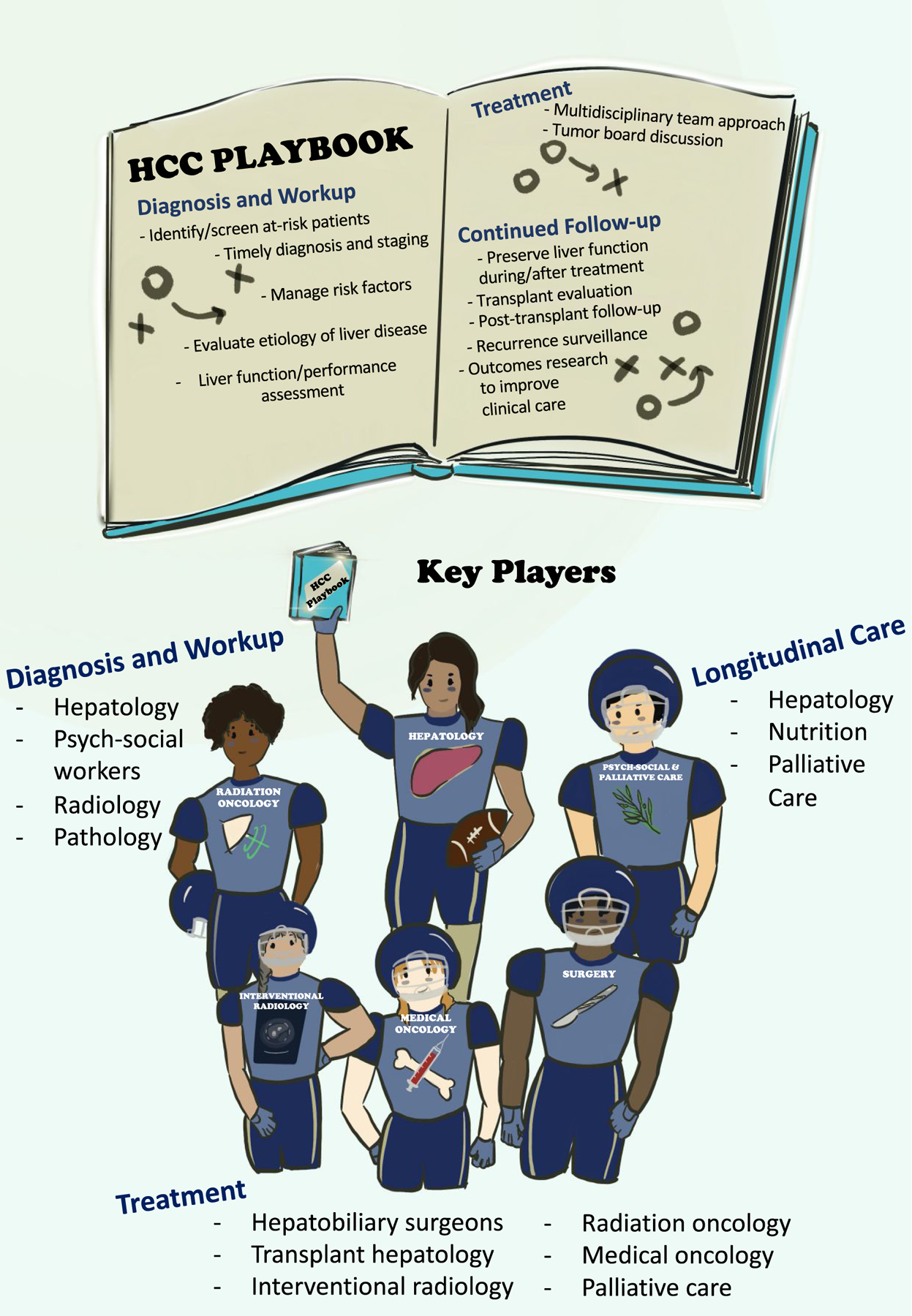Figure 1:

In this figure, we emphasize the central role of the hepatologist in managing patients with hepatocellular carcinoma (HCC) and highlight the primary providers associated with each stage of care. Hepatologists are specialized providers well versed in the understanding and treatment of various forms of chronic liver disease which often coexist and precede the develop of HCC. They are therefore essential to identify high-risk patients to ensure surveillance protocols are implemented to aide in early detection of HCC. Additionally, thorough assessment of risk factors and etiologies of underlying liver disease is imperative, as the majority are either preventable or treatable. Once diagnosed with HCC, hepatologists should work promptly to stage patients and evaluate their underlying liver function and performance status which are critical elements in assessing treatment candidacy. We denote the importance of an integrated, multidisciplinary team approach when it comes to discussing treatment of these complex patients and recommend care management in tertiary centers with experienced providers when possible. After treatment has been implemented, hepatologists are key players for longitudinal care to help manage complications of liver disease, assess for disease recurrence, evaluate for transplant candidacy, and integrate palliative care services when necessary.
